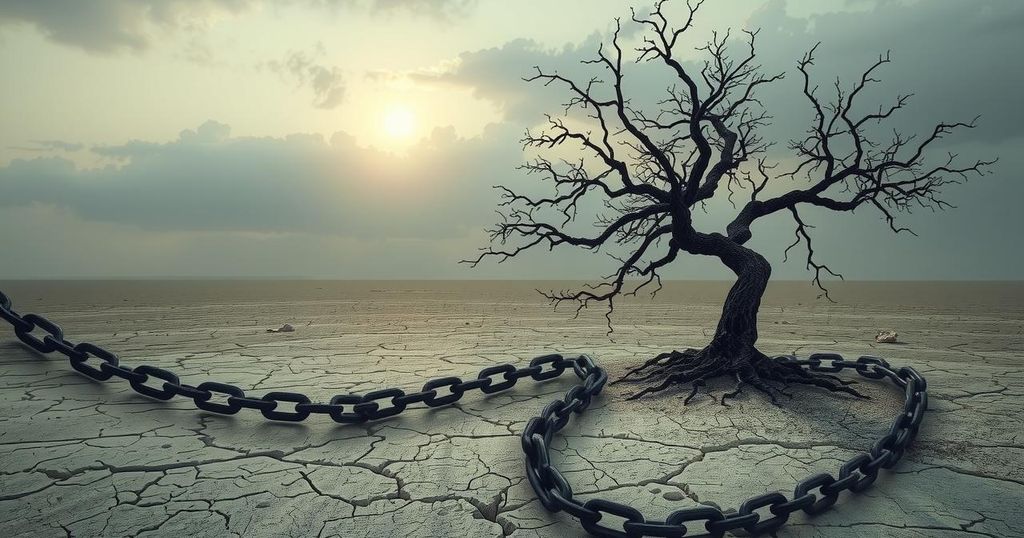Climate change is worsening vulnerabilities in Africa and contributing to rising modern slavery, which comprises forced labor and unwanted marriages. Approximately 50 million people globally are trapped in modern slavery, with Africa suffering significantly. Addressing this requires strong legal frameworks, raising awareness, and incorporating antislavery measures into climate policies.
The impacts of climate change through extreme weather events are increasingly influencing societal dynamics, particularly in connection with modern slavery. Although underexamined, these events create vulnerabilities that can lead to forced labor and unwanted marriages, as noted by legal scholar Daniel Ogunniyi, who has researched these intersections in Africa.
Modern slavery encompasses various forms of exploitation, including forced labor, human trafficking, and servitude, often linked to control and exploitation. In Africa, practices such as forced begging and descent-based slavery—where individuals are born into slavery—are prevalent, especially in countries like Chad, Mauritania, and Niger. This form of exploitation today affects approximately 50 million people globally, with Africa accounting for around 7 million victims.
Research indicates that approximately 3.8 million individuals in Africa endure forced labor, primarily in the agriculture and domestic sectors. Additionally, an estimated 3.2 million are trapped in forced marriages, while human traffickers exploit economic vulnerabilities by promising false employment opportunities. The victims often face severe labor conditions and abuse, resulting in continued cycles of exploitation.
Factors such as poverty, political instability, and armed conflict have historically driven modern slavery, but climate change is increasingly recognized as a significant contributor. As extreme weather worsens pre-existing socioeconomic disparities, communities with limited resources become even more vulnerable, losing livelihoods and facing displacement, which in turn increases their susceptibility to modern slavery.
For instance, devastating climate effects lead to situations in Ghana where drought forces families to sell their children into labor or marry them off for dowries. Many young women migrate in search of better opportunities, only to find themselves in exploitative roles as porters, known as “kayayie.”
To combat modern slavery in Africa, several actions are necessary: strong legal frameworks aligned with international standards must be adopted, and regional cooperation on intelligence sharing should be enhanced. Additionally, awareness campaigns and educational programs targeting vulnerable populations are crucial.
Addressing the root causes of poverty and inequality is essential in mitigating the factors that foster exploitation. Antislavery measures should also be part of comprehensive climate policies, which currently focus predominantly on environmental outcomes without addressing how climate change exacerbates modern slavery. Furthermore, the renewable energy sector must be mandated to implement human rights due diligence within their operations to prevent exploitation during the global transition to sustainable energy sources.
In conclusion, the intersection of climate change and modern slavery in Africa poses significant challenges that demand immediate attention. By strengthening legal frameworks, increasing awareness, and embedding antislavery measures within climate policies, we can address the root causes and mitigate the risks associated with modern slavery. It is crucial for governments, stakeholders, and communities to collaborate in combating this pressing issue.
Original Source: theconversation.com




